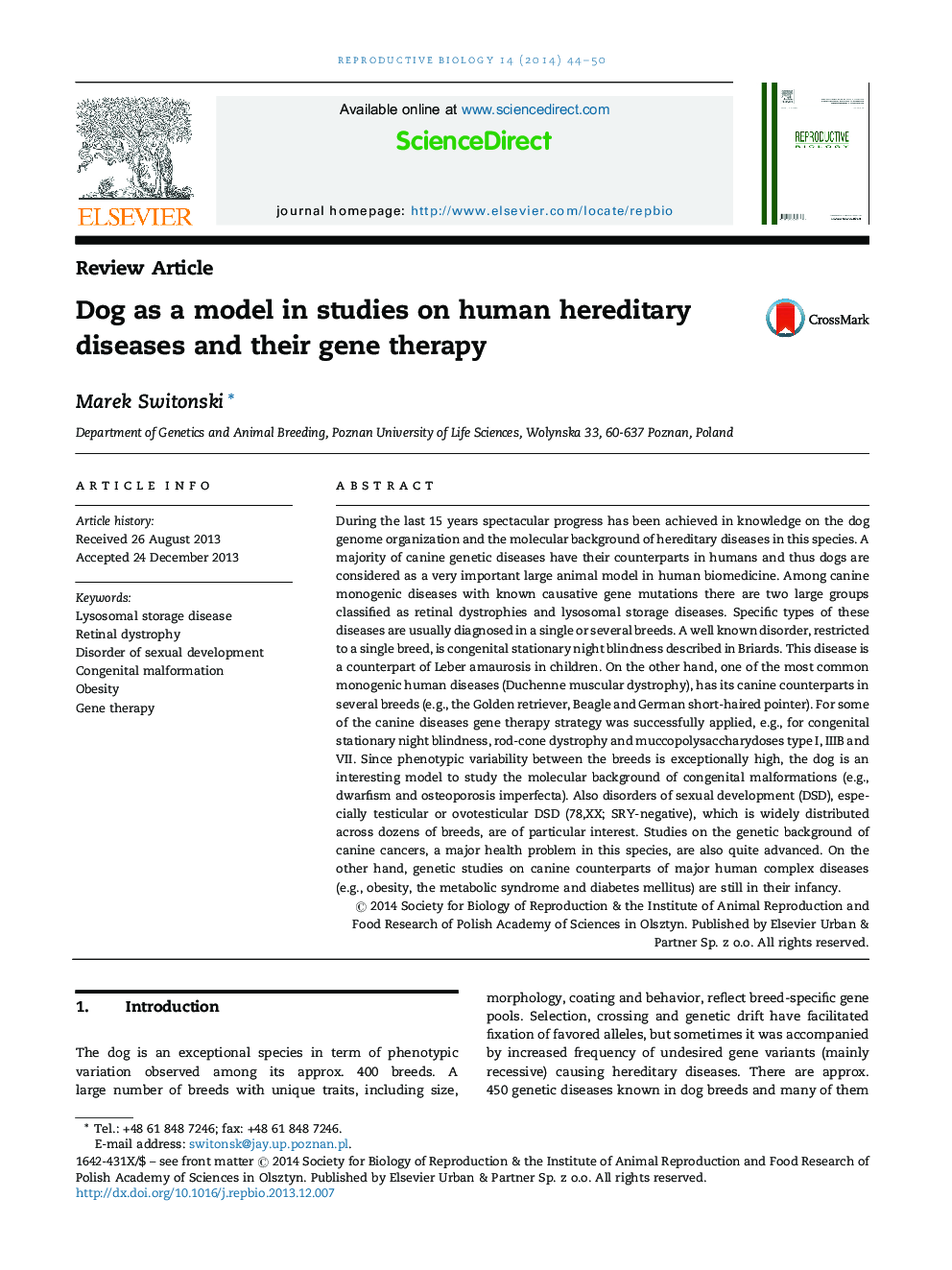| کد مقاله | کد نشریه | سال انتشار | مقاله انگلیسی | نسخه تمام متن |
|---|---|---|---|---|
| 2062497 | 1076611 | 2014 | 7 صفحه PDF | دانلود رایگان |
During the last 15 years spectacular progress has been achieved in knowledge on the dog genome organization and the molecular background of hereditary diseases in this species. A majority of canine genetic diseases have their counterparts in humans and thus dogs are considered as a very important large animal model in human biomedicine. Among canine monogenic diseases with known causative gene mutations there are two large groups classified as retinal dystrophies and lysosomal storage diseases. Specific types of these diseases are usually diagnosed in a single or several breeds. A well known disorder, restricted to a single breed, is congenital stationary night blindness described in Briards. This disease is a counterpart of Leber amaurosis in children. On the other hand, one of the most common monogenic human diseases (Duchenne muscular dystrophy), has its canine counterparts in several breeds (e.g., the Golden retriever, Beagle and German short-haired pointer). For some of the canine diseases gene therapy strategy was successfully applied, e.g., for congenital stationary night blindness, rod-cone dystrophy and muccopolysaccharydoses type I, IIIB and VII. Since phenotypic variability between the breeds is exceptionally high, the dog is an interesting model to study the molecular background of congenital malformations (e.g., dwarfism and osteoporosis imperfecta). Also disorders of sexual development (DSD), especially testicular or ovotesticular DSD (78,XX; SRY-negative), which is widely distributed across dozens of breeds, are of particular interest. Studies on the genetic background of canine cancers, a major health problem in this species, are also quite advanced. On the other hand, genetic studies on canine counterparts of major human complex diseases (e.g., obesity, the metabolic syndrome and diabetes mellitus) are still in their infancy.
Journal: Reproductive Biology - Volume 14, Issue 1, March 2014, Pages 44–50
